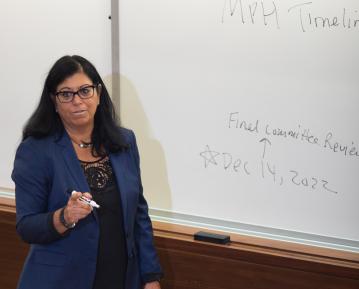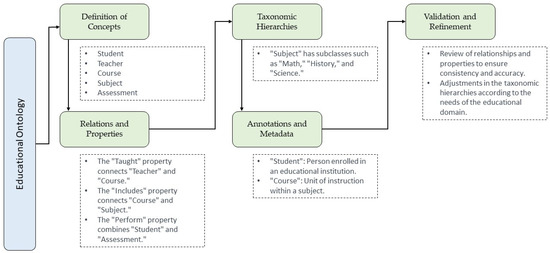Get This Report about Bioinformatics Tutor
Get This Report about Bioinformatics Tutor
Blog Article
An Unbiased View of Bioinformatics Tutor
Table of ContentsTop Guidelines Of Bioinformatics TutorThe Facts About Bioinformatics Tutor UncoveredSome Known Factual Statements About Bioinformatics Tutor The Of Bioinformatics TutorFacts About Bioinformatics Tutor Uncovered
Of the total participants associated with the training, 80% were pupils from public college organizations, while the staying 20% came from exclusive organizations. To get approved for a certificate of engagement, students were called for to go to a minimum of 90% of the total training hours. As an outcome of this requirement, an outstanding 95% of the individuals effectively acquired their certifications, having not only met the minimum participation requirements yet likewise finished all designated activities throughout the training.
Throughout the elevation of the COVID-19 pandemic, particularly in between June and August 2020, the job team was entrusted with organizing specialized training in bioinformatics. This training was specifically focused on trainees from the study team Nucleus for Research in Applied Computer at the Federal University of Pará (UFRA) The adjustment to remote learning systems as a result of the pandemic created a possibility to check out new training approaches and electronic tools that enhanced both reach and efficiency.
To react to the growing demand in the computer and life sciences fields, an innovative training course was presented in 2020 labelled Introduction to Device Discovering. This program was created to give an available yet thorough overview of Artificial Knowledge methods, particularly as applied in bioinformatics. The program was carried out over 3 months, from October to December 2020, and was provided entirely online via the Google Meet platform. This digital style allowed involvement from trainees across Brazil, many of whom could not have had the possibility to go to in-person sessions.
The Bioinformatics Tutor Statements
A significant feature of this training course was its focus on hands-on discovering. Roughly 50% of the total training hours were dedicated to functional tasks where trainees constructed intelligent models and applications in a series of scientific domain names, including genes, molecular biology, and environmental data evaluation. Commonly made use of frameworks and tools such as Spyder, Google Colab, Jupyter Notebooks, and Orange were integrated right into the coursework. These platforms made it possible for trainees to take part in real-time data manipulation, version training, and algorithm testing.
Sixty of them were connected with different greater education and learning organizations in the state of Pará, while the continuing to be twenty came from establishments situated in 5 various other Brazilian states. By introducing Artificial Knowledge in a relevant and functional context, the campaign offered to connect the space in between concept and real-world application, giving trainees with a solid structure for future study or work in the area.
The training effort created component of a wider academic outreach effort known as the Bioinformatics when driving project. This task has, over the years, introduced dozens of pupils to the globe of bioinformatics and computational biology. The events held under this umbrella effort have happened throughout several regions and years, as summed up in Table 1 (Checklist of events, areas, years, and total numbers of pupils and trainers)
Numerous of these groups, at first brought with each other by their engagement in training occasions, have since gone on to generate independent scientific study in cooperation with regional academic establishments. The training not only cultivated clinical reasoning within the context of bioinformatics yet also Click This Link triggered collective partnerships that expanded beyond the training atmosphere.
Bioinformatics Tutor - The Facts
The same team, excluding IH and RR, additionally acted as tutors for the practical training components. Financing for the job was supplied via the give 88887.200562/ 2018-00 from CAPES.
The Federal College of Pará's Office of Research (PROPESP/UFPA) also offered financial assistance, especially for the production of the last manuscript. The writers state no financial or business disputes of interest that can have affected the study. In addition, all analyses and viewpoints expressed in this write-up are exclusively those of the writers and do not always show those of their respective establishments, the author, editors, or reviewers involved in the magazine process.
Excitement About Bioinformatics Tutor
From an instructional point of view, the teaching strategy made use of in the training was deliberately interactive. Courses were performed in a fashion that encouraged pupil involvement and conversation, surpassing rote memorization to discover exactly how ideas are established, applied in daily life, and visite site checked in academic settings. The educational approach concentrated on nurturing both solid and struggling students, giving individualized assistance, and building confidence via sustained mentorship and persistence.

Each team, consisting of about 36 participants, was supported by three mentors-- a lot of whom were postdoctoral scientists with specific experience. These coaches not just helped make the team projects yet additionally facilitated their execution, making certain that each study inquiry was both properly difficult and relevant. The objective was to offer a naturally sensible context that individuals can check out through flexible objectives and accessibility to curated datasets.
For added understandings into the technique and outcomes of this project-based knowing approach, viewers are routed to S1 Text, that includes comprehensive summaries of the pedagogical structure, analysis methods, and project styles used in the training sessions.
Bioinformatics Tutor Things To Know Before You Get This
Of the total participants included in the training, 80% were pupils from public greater education and learning institutions, while the staying 20% came from personal establishments. To qualify for a certification of engagement, students were required to attend at the very least 90% of the total training hours. Significantly, beyond the trainees that registered in the training sessions, seven skilled trainers took part in providing the courses, while three devoted study teachers worked with the overall training process. Roughly 50% of the overall click now training hours were devoted to functional activities where trainees developed intelligent models and applications in an array of scientific domain names, consisting of genetics, molecular biology, and environmental data analysis. The training not just cultivated clinical thinking within the context of bioinformatics but also triggered joint connections that prolonged beyond the training environment.
Report this page